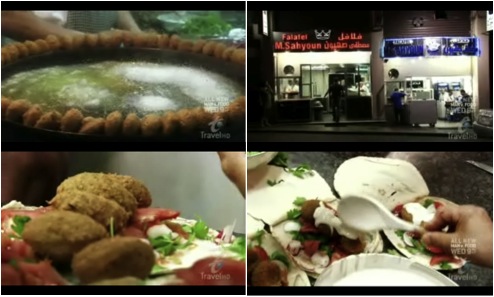Amy was asking me about something speculative and that I said trying to predict such things was a mug’s game.
The language professor asked, what’s that?
A foolish, profitless or hopeless undertaking.
Predicting U.S. allotments for federal agencies is an endless mug’s game that I choose to ignore. I have enough trouble dealing with what’s going on today. Others thrive on that stuff.
The Washington Post has a story today about a putative boost in funding for the U.S. Food and Drug Administration agreed to by Congress (but not the Senate or the President) that I will ignore but does have a couple of juicy quotes about food safety.
“I mean God forbid to have another recall like this. . . . It just froze the market,” said Mohammad Abu-Ghazaleh, chief executive of Fresh Del Monte Produce in a call with analysts this month. He .jpg) was talking about the 2006 E. coli O157:H7 outbreak in spinach.
was talking about the 2006 E. coli O157:H7 outbreak in spinach.
God doesn’t have a lot to do with it. He or she or they probably have other things to do than micromanage outbreaks of foodborne illness or help you make that crucial putt on 18.The vast majority of foodborne outbreaks are not acts of god, they are the result of individually minor food safety mistakes in a culture that relegates food safety to a paragraph in the annual report that, over time, synergistically accumulate eventually making people barf or die.
The story notes that major recalls linked to foodborne illnesses exact real and reputational costs by shaking consumer confidence, but fails to answer the question: would listeria-in-cantaloupe, salmonella-in-peanut crap, E. coli in leafy things have been prevented by a stronger FDA?
Doubtful.
I’m all for a regulatory presence that is consistent and evidence-based, farm-to-fork. But that ain’t going to do much for people who will be barfing after eating food today.
Scott Faber, a vice president at the Grocery Manufacturers Association, said, “At a time when some industries are trying to handcuff their regulators, the food industry is advocating for a stronger regulator with more powers and more resources. … We’re competing with manufacturers all over the world. Maintaining and burnishing FDA’s reputation helps us open doors in those markets.”
Sounds nice but the responsibility to produce safe food lies with the producer, processor, retailer, restaurant, whoever is dishing it up. An industry group wanting more government oversight is also saying, we give up, it’s your problem.
Those that care about safe food will stop wasting their time with government and get on with it; then brag about it; then capture more market at retail.
The rest is a mug’s game.

.jpg) six months prior to the inspection, when six mice were exterminated.
six months prior to the inspection, when six mice were exterminated..jpg) Nobody’s happy.”
Nobody’s happy.” bar, too.
bar, too. be left out” for the next person who comes in.
be left out” for the next person who comes in..jpg) stuff. We haven’t run into vomit in a while."
stuff. We haven’t run into vomit in a while." importing bodies and show which types of aquatic animals, and from which countries, are most often failing inspection. The study identified a lack of inspection in the U.S. compared to its peers: only 2 percent of all seafood imported into the U.S. is tested for contamination, while the European Union, Japan and Canada inspect as much as 50 percent, 18 percent, and 15 percent of certain imported seafood products. When testing in the U.S. does occur, residues of drugs used in aquaculture, or "fish farms," are sometimes found; above certain concentrations, these drugs are harmful to humans.
importing bodies and show which types of aquatic animals, and from which countries, are most often failing inspection. The study identified a lack of inspection in the U.S. compared to its peers: only 2 percent of all seafood imported into the U.S. is tested for contamination, while the European Union, Japan and Canada inspect as much as 50 percent, 18 percent, and 15 percent of certain imported seafood products. When testing in the U.S. does occur, residues of drugs used in aquaculture, or "fish farms," are sometimes found; above certain concentrations, these drugs are harmful to humans. Thursday afternoon.
Thursday afternoon. faire, to say the least.
faire, to say the least. consumers who get food poisoning from restaurants don’t report the incident.
consumers who get food poisoning from restaurants don’t report the incident. laws," he said.
laws," he said.